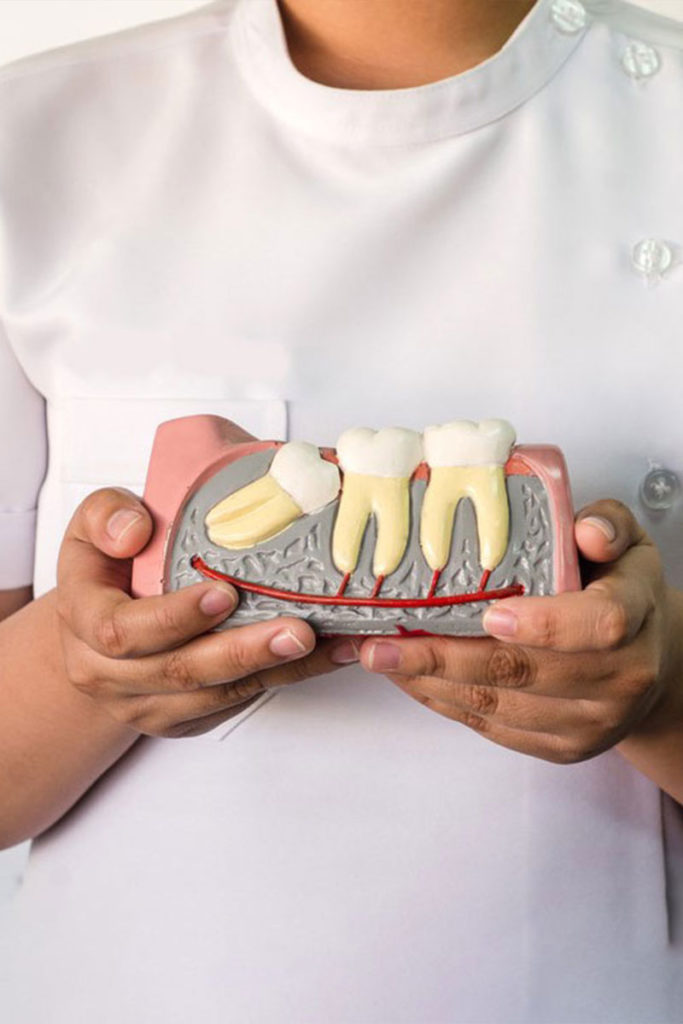
22 MARCH 20
If your wisdom teeth develop with no problems, discomfort will be temporary – like when a baby is teething.
However, in many cases wisdom teeth cause a great deal of distress, and the pain won’t go away on its own.
That’s why dentists remove wisdom teeth – to correct painful issues that have already developed and as a preventive measure to avoid future complications.
Wisdom teeth can be painful when there’s not enough room for them to grow in – as is often the case. When they can’t emerge properly through the gum line, this can damage adjacent teeth, tooth nerves, and jaw bone.
Complications from problem wisdom teeth can result in other serious health issues. And a wisdom tooth infection can spread through your body, damaging vital organs.
If your wisdom teeth are likely to cause painful problems, you’ll probably start to realise something is wrong in your late teens or early 20s.
Symptoms that may be painless but indicate trouble ahead include:
- Bad breath.
- Unpleasant taste in the mouth.
- Feeling generally unwell.
However, many symptoms of a wisdom teeth issue can be painful, including:
- Discomfort in the back of your mouth.
- Stiff, tender jaw.
- Swelling around the gums.
- Difficulty eating or opening your mouth.
If your wisdom teeth are causing problems like those listed above, it’s highly likely the only solution is extraction – and the sooner the better.
Even if your wisdom teeth are causing only minor discomfort now, you can expect things to get worse. And if you bite the bullet and wait too long, wisdom teeth removal can be more difficult.
Without treatment, troublesome wisdom teeth can cause serious, painful complications such as:
- Damage to adjacent teeth – pressure from wisdom teeth can damage neighbouring teeth and increase risk of infection in the area.
- Dental abscess – a build-up of pus inside a tooth or in the gums or underlying jaw bone, caused by bacterial infection that can make its way to other parts of your body.
- Severe gum inflammation – problematic wisdom teeth increase the risk of a gum infection called pericoronitis, which can be extremely painful.
- Sinus problems – the roots of upper wisdom teeth can compress sinuses, causing congestion, inflammation, and headaches.
Extraction ends the misery of wisdom tooth pain, prevents further painful dental problems in the future, and helps to safeguard your overall health.
Wisdom teeth removal is a surgical procedure usually done with local anaesthetic in a dental clinic. General anaesthesia is often unnecessary but may be advisable for lengthy procedures or if you get high levels of stress. Dental sedation may also be available to help you relax.
Recovery after wisdom teeth extraction can take a couple of weeks, depending on the type of anaesthetic used, the complexity of the procedure, and how much damage the problem has caused to other areas of your mouth.
Wisdom Teeth Sydney specialises in wisdom teeth removal with stress-free procedures and straightforward recovery. Call us now on (02) 8045 5139 for the only solution to prolonged wisdom teeth pain.